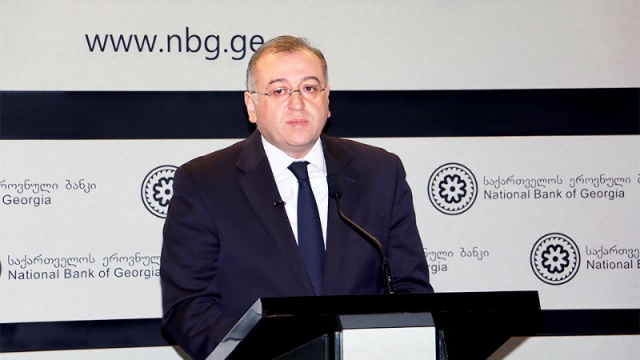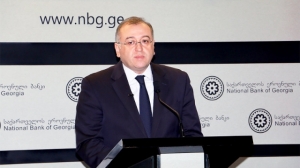National Bank of Georgia Reduces Refinancing Rate to 8,5%
The Monetary Policy Committee of the National Bank of Georgia has decided to reduce the refinancing rate by 0.5%, to 8.5%, the President of the NBG, Koba Gvenetadze announced today.
"On April 29, the Monetary Policy Committee of the National Bank of Georgia decided to reduce the refinancing rate by 50 basis points. The monetary policy rate is 8.50%. Amid the sharp decline during the coronavirus pandemic and international oil prices, economic uncertainty in the world continues.
"Georgia's annual inflation rate in March was 6.1%. The National Bank predicts that inflation, due to temporary factors, will remain high for several months, then gradually decline, and in the first half of 2021 it will reach its target level.
"The dynamics of inflation are determined by the interaction of factors on both the demand and supply. Given the expected weakness of the demand side, there is no need to maintain a tightened policy at this level. Accordingly, the Monetary Policy Committee began its gradual exit from the tightened policy and reduced the policy rate by 50 basis points. Despite the decline, the monetary policy remains tight, ensuring a return to inflation targets in the medium term. The Monetary Policy Committee will gradually step out of its tightened policy, and further steps will depend on how quickly inflation expectations are reduced.
"As I've noted, the sharp decline in demand will affect inflation. The current forecast shows that Georgia's real economic growth will be reduced by 4%, which is due to the decline in local and foreign demand. Given the preliminary data, exports of goods in March decreased by 22% annually, while revenues from international travelers decreased by almost 70%. There was also a decrease in remittances (-9%). At the same time, imports (-13%) decreased, indicating a weakening of domestic demand. Among the factors affecting the supply side, it is noteworthy that the delays in production processes and supply chains affect the costs of companies and, consequently, the growth of prices. However, assuming that the large-scale restrictions imposed by the spread of the virus are short-lived, the latter is a shock of a temporary nature, to which the monetary policy response is counterproductive.
"At the same time, the decline in inflation in international markets will be sharply affected by falling oil prices, which will gradually affect the decline in petrol prices in Georgia. Additional crucial assistance from international financial organizations will help eliminate the impact of the shock on economic growth and inflation.
"The National Bank of Georgia is constantly monitoring the situation and making appropriate decisions. The National Bank will use all the tools at its disposal to ensure price stability. The next meeting of the Monetary Policy Committee will be held on June 24, 2020,” Koba Gvenetadze said.
By Ana Dumbadze











